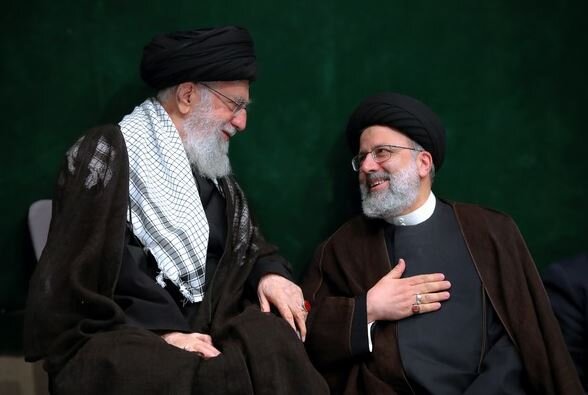Tehran – On the martial anniversary of Seyed Ebrahim Raisi, the leader of the Islamic Revolution, Ayatollah Seyed Ali Khamenei emphasized his exceptional qualities and emphasized that speaking these traits serves as a lesson for all.
He concluded that a person like the late president, who has firmly followed the path of martyrs over the past 40 years, embodies the enduring strength of the Islamic revolution. This human capital is what Imam Khomeni called “fas al-huttu,” or the ultimate victory.
Following the success of Operation Tariq al-Kud during the Iran-Iraq War, in the message, Imam Khomeini defined these highly human assets and “fath al-futuh.”
“What fills me with pride is my unshakable spirit, a heart full of faith and sincerity, and my devotion to martial teaching of these beloved individuals, the true soldiers of Imam Mahdi. This is certainly the ultimate victory.”
The people shaped by the Islamic Revolution and the teachings of Imam Khomeini continue to appear, inspiring not only Iranians but also people all over the world. The martyrs who defended the shrine of sacred figures against the terrorists of Dash represent the latest generation of this revolutionary spirit and the heirs of Imam Khomeini’s legacy.
Haj Qasem Soleimani stands as the ultimate embodiment of this idea. Martyr seyyed Ebrahim Raisi is a perfect example of the ideal of the Islamic Revolution, and through his leadership he has proven that Imam Khomeini’s “Fath al-futuh” remains fruitful. His life is a testament to the vitality of revolution.
People of the Islamic Revolution are less keen on pursuing ideals that are not hampered by danger. But what drives this unwavering dedication? What sets them apart from others? How do followers of Imam Khomeini’s teachings leave a profound, heart-pounding influence even within leadership challenges? And why do critics force their virtues to acknowledge even in their absence?
Raisi had amazing personal and managerial qualities. His transformational influence was evident everywhere he served. He was not a routine thing. He has brought about fundamental and lasting change.
Hardworking, courageous and innovative, he was an ethics man who tirelessly dedicated himself to connecting with people and empowering young people. He was knowledgeable, detailed oriented and able to integrate diverse talents. He was pure, sincere and humble, among other things.
But all these qualities lie on two basic pillars. Without them, Raisi would not personify the ultimate victory of the revolution, nor would he have received such deep public love and high praise from his leaders. Without them, “Raishi” would not have become “mart teacher Reishi.”
These two pillars were truth and honesty.
It was a sincere miracle that made Raisi the “martist president.” He lived as a martian, so he would die as a single person – and the essence of such a life is integrity. He mastered his inner self and took on great external efforts.
All the transformations, movements, and struggles that came out of the power he cultivated.
Raisi’s truthfulness and sincerity turned him into a legend. His time in leadership reminded me that even in a world where corrupt rulers are hurt by deceiving each other in crime and oppression, purity, and true service, they are plagued by deceiving deceived.

